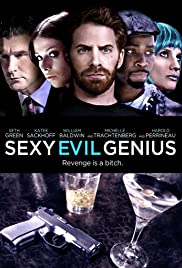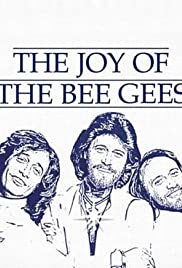Search

The seven short films making up GENIUS PARTY couldn’t be more diverse, linked only by a high standard of quality and inspiration. Atsuko Fukushima’s intro piece is a fantastic abstraction to soak up with the eyes. Masaaki Yuasa, of MIND GAME and CAT SOUP fame, brings his distinctive and deceptively simple graphic style and dream-state logic to the table with “Happy Machine,” his spin on a child’s earliest year. Shinji Kimura’s spookier “Deathtic 4,” meanwhile, seems to tap into the creepier corners of a child’s imagination and open up a toybox full of dark delights. Hideki Futamura’s “Limit Cycle” conjures up a vision of virtual reality, while Yuji Fukuyama’s “Doorbell” and “Baby Blue” by Shinichiro Watanabe use understated realism for very surreal purposes. And Shoji Kawamori, with “Shanghai Dragon,” takes the tropes and conventions of traditional anime out for very fun joyride.

A dark comedy about an eclectic group of strangers invited to a downtown bar by a mutual ex-lover, Nikki Franklyn, a maddeningly sexy, unpredictable and possibly insane young woman who’s recently gotten out of prison for murdering her last ex-boyfriend. The party really gets started when Nikki herself arrives, hauling her latest lover and fiancee, the morally challenged lawyer who’d been handling her case. She’s mysterious about her intentions and her current and former lovers soon realize they are all caught in one of her brilliant, mischievous mind-games with possible deadly consequences. By the night’s end, revenge will be had, new romance will bloom, and Nikki will have delivered on her reputation as the sexy evil genius

Chris is the top brain who just wants to party, Mitch is the 15-year-old college wiz kid. Supposedly hard at work on a lab project with a mysterious deadline, they still find time to use their genius to discover new ways to have fun.

Neglected by her husband, our heroine decides to make him jealous by getting the handyman to play a literary genius at a party and flirt with her.

Guilty pleasure or genius, misfits or mavericks, noble or naff – how do we really feel about the Bee Gees? Are the brothers Gibb a cacophony of falsettos or songwriting maestros, the soundtrack to every office party or masters of melancholy and existential rage? Are they comedy or Tragedy? How deep is our love and how deep are the Bee Gees? With a back catalogue that includes hits like How Do You Mend a Broken Heart, Massachusetts, Islands in the Stream, Stayin’ Alive, Chain Reaction, How Deep Is Your Love, Gotta Get a Message to You, Words, To Love Somebody and Night Fever, the Bee Gees are second only to the Beatles in the 20th-century songwriting pantheon, but while their pop success spans several decades, there are different Bee Gees in different eras. Is there a central glue that unites the brothers and their music and, if so, what is it? The Joy of the Bee Gees features a rare interview with the last remaining Bee Gee brother, Barry Gibb, many of those musicians and industry …